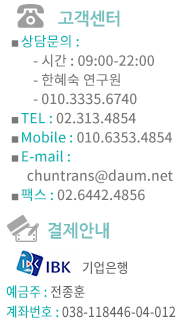|
|
China should realize world’s resolve on N.K. threat China becomes a focus of international attention whenever North Korea escalates tensions by nuclear tests or long-range missile launches. It is because the international community looks to China, the sole socialist ally and economic patron of North Korea, for reining in the world’s most notorious rogue state. But one knows what China has done in the past 10 years -- since North Korea’s first nuclear test in 2006. It failed to -- or did not -- pressure or persuade the leaders in Pyongyang to abandon their nuclear and missile development programs. Instead, what the leaders in Beijing did was only stress calmness and dialogue. They also tried to water down the resolutions of the U.N. Security Council -- of which it is one of the five permanent members -- and became a reluctant signatory. It, of course, was not faithful in following up on the resolutions. By all signs, Chinese leaders are following the same pattern after the North’s latest nuclear test and the long-range missile launch. President Xi Jinping kept President Park Geun-hye waiting for about 30 days before agreeing to have a telephone conversation about the North’s fourth nuclear test Jan. 6. U.S. Secretary of State John Kerry, who hurried to Beijing to ask Xi and other Chinese leaders to slap North Korean leader Kim Jong-un, went back to Washington empty-handed. What both Park and Kerry heard from Chinese leaders was the same as what their predecessors did during the past 10 years -- the North Korean issues should be settled through dialogue, not sanctions. All in all, China remains as defiant of international pressure as ever. But this time, Chinese leaders will be facing a different world. The international community -- led by the U.N., South Korea, U.S. and Japan -- is working faster, and more importantly more resolutely, to punish the North Koreans. The U.S. Senate has already passed a bill imposing sanctions on those who contribute to the North‘s nuclear and missile development, including importing and exporting related materials. The toughest-ever U.S. bill also calls for sanctions on those who engage in the North’s cyberattacks, import of luxury goods, money laundering, manufacture of counterfeit goods, narcotics trafficking and trade in minerals and precious metals. In Tokyo, the Japanese government has announced the imposition of unilateral sanctions on North Korea. The measures are highlighted by a ban on North Korean ships and those of third countries that visited the North and on North Korean nationals and their sympathizers. Then came the Seoul government’s decision to pull South Korean businesses out of the Gaeseong industrial park, which has been a symbol of inter-Korean economic cooperation and a buffer zone between the two sides over the past 12 years. South Korea did not halt the operation of the complex even after the North’s attacks on the Cheonan naval ship and Yeonpyeongdo Island in 2010. The decision, which will certainly inflict considerable losses for the 124 South Korean firms that operate there and dims the thin hope for reconciliation on the peninsula, reflects President Park Geun-hye’s determination to deal with the North even at a greater risk for increasing tension on the peninsula. South Korea’s move to station the U.S. advanced missile defense system -- Terminal High Altitude Area Defense -- despite vehement protest from China is another article of evidence that it will take on the North Korean issue in a different manner, regardless of China’s stance. All these show that unlike in the past, many of the anti-North Korea countermeasures to be taken by the international community -- especially South Korea, the U.S. and Japan -- will not be swayed by the Chinese factor. This calls upon the leaders in Beijing to rethink their policy on North Korea. China is already in conflicts with regional powers like the U.S., Japan and even Southeast Asian countries over the South China Sea, and siding with the world’s most unpredictable, isolated regime will only make it unwelcome in the region and beyond. Source: http://www.koreaherald.com/view.php?ud=20160212000995 |




| 

|























